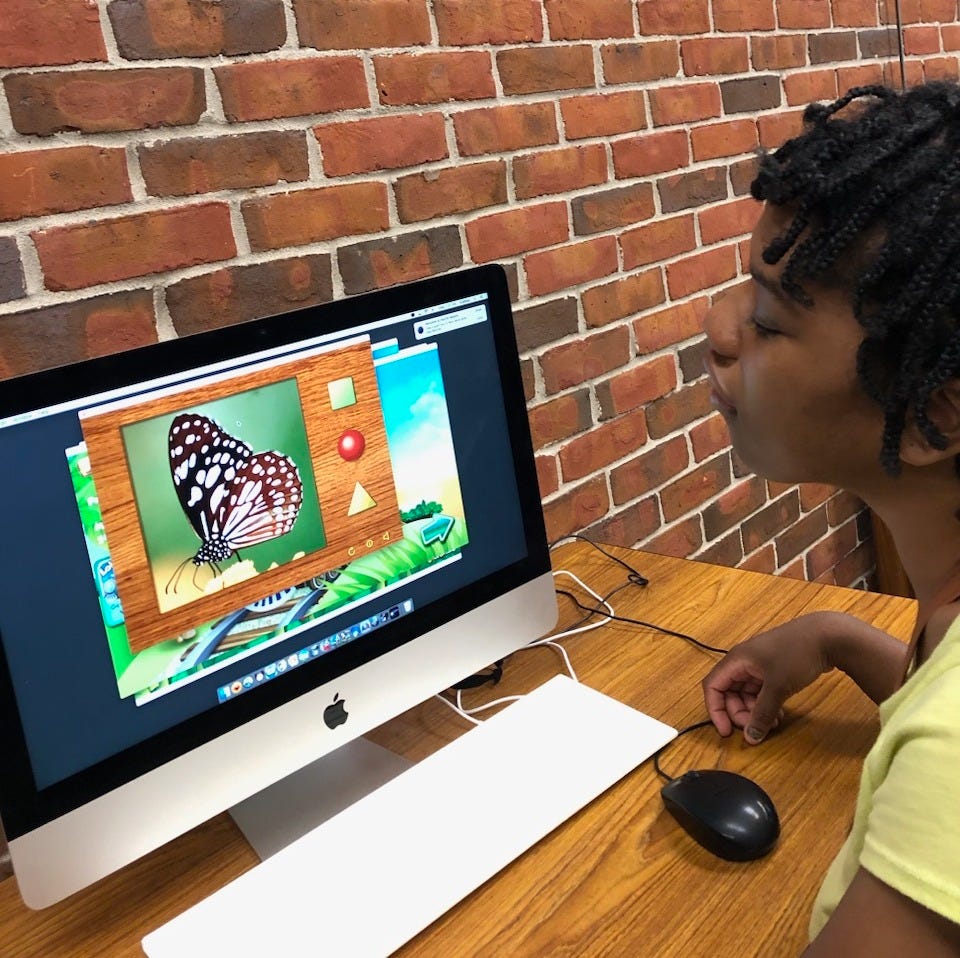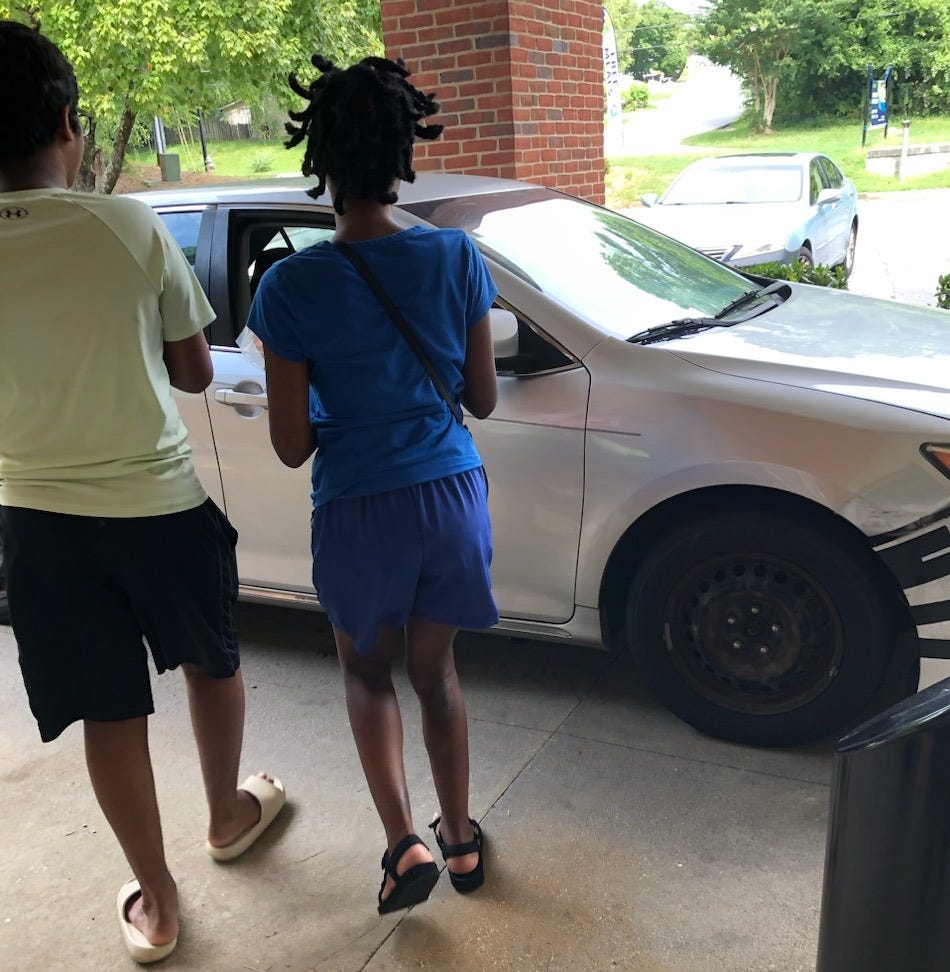Do you remember what it was like the last week of school? The entire place would be buzzing with energy. Testing was winding down, students were practicing for promotion and graduation ceremonies, teachers were planning end-of-school activities, and everyone was smiling a little more in anticipation of time away from the classroom.
Time away from school means more time at home and hopefully, a less demanding schedule for everyone involved. Having a child with special needs can bring additional challenges, and you might be feeling more stressed as you navigate how to manage each day. If your child has a developmental or intellectual disability, it is important to encourage continued learning to maintain the skills they’re already developing. What can you do to make learning fun? How do you maintain your sanity in the process?
While our daughter, Kendra, was enrolled in school, I was working fulltime during the school year. Being nonverbal and diagnosed with autism, Kendra received services in special education. Her academic goals and objectives were addressed through a Individual Education Program (IEP). We were both at home during summer and I needed the break as much as she did. Early on, I decided to choose one specific goal or objective to focus on during the summer. The objective focused on a skill that would empower Kendra to be more self-reliant.
When she was almost five years old, she was still not independent in the restroom. I was still changing diapers, which became more difficult as she grew stronger and would not stay in one place. Realizing that some daycare centers, after-school programs, camps that include all abilities, and other recreational programs sometimes choose to deny services to those who may need support with toileting, I considered it a priority to focus on toileting.
When school ended for the summer, I set a goal to focus on toilet training. Using a timer, the ringer reminded me to offer her a bathroom break. Convincing Kendra to sit on the toilet, I would sit on the edge of the bathtub, praying that she would sit for at least a minute or two. Initially, two minutes was too long, but I kept returning several times a day, repeating the process. Depending on her mood, I would sing, read, and talk to her as she sat whining. Often, I cried more than she did, as it seemed as if she would never be successful. Being as stubborn as she could be, I was persistent and consistent and repeated the same steps every day for several weeks. Even if she did nothing but sit still for a few minutes, I would give her a treat for doing so. At that time, a single raisin was enough of a treat to motivate her to try. As time went on, two minutes were increased to five or longer, without whining.
Finally, a light-bulb moment! Just before the new school year, I spotted Kendra going to the bathroom without me having to prompt her. Independently, she used the toilet appropriately and I only had to assist her in washing her hands. I was overwhelmed with excitement and offered much praise.
By the time school started, she was wearing cotton underwear, with minimum accidents. When the new school year began, she was independently using the restroom and has done so since that time.
Depending on your child’s needs and goals, you may already have a goal you consider most important for your child’s progress. Academics are important but if you wish to give your child a break from studying, there are other things you can focus on. Some ideas: enjoying reading or listening to books being read, bathing, choosing proper clothing, dressing, folding and organizing their bedroom, practicing quiet time, going into the community, shopping, counting money, etc. You know your child better than anyone, so allow them to help you choose a goal important to them.
There are also ways to include fun into the day that cost little or no money: board games that support taking turns, movies, music, karaoke, dancing, walking in the park, visiting the library, having picnics in the park or back yard, arts and crafts, swimming or playing in water, etc. To support social skills, collaborate with another parent, to allow your child to spend time with a friend. Depending on your child’s ability to interact, this may take planning. In past years, Kendra would go over to a friend’s home and participate in music therapy. Though both of them are nonverbal, they had fun making music together.
Many states have various summer camps that accommodate children and/or adults who have disabilities or other diseases or conditions. There are camps that are exclusive to persons with epilepsy, autism, down syndrome, cancer, visual impairment, hard of hearing, diabetes, attention deficit disorders, bereavement, brain injury, cerebral palsy, and other chronic illnesses or disorders. Some camps include mixed needs, such as physical disabilities, emotional disabilities, and learning disabilities. As you know your child best, you’ll have to decide which type of setting will best address his or her needs.
Other things to consider are your child’s interests, location, hours of operation, staff ratio, cost, whether the camp is half-day, full day, weekend, or overnight. It may also be beneficial to ask other parents for referrals to camps their child has attended.
Keep in mind that camp enrollment fills up quickly and it is best to submit applications in March or two months before the school year ends. If cost is an issue, you may inquire about scholarships and seek funding through your local state agencies that focus on behavioral health and developmental disabilities. Funding sources may vary from state to state.
Volunteering offers every individual a sense of purpose and achievement. During summer, Kendra volunteers to hand out lunches for the free summer lunch program, at nearby parks. It is her way of contributing to the wellbeing of her community. The experience not only sharpens her social and functional skills but also gives others the opportunity to become acquainted with someone who is differently abled.
Whatever you decide to do with your child(ren) during the summer, make time to laugh, love, play, relax, breathe, and be grateful.
Happy Summer!







Yes, as one of her teachers, I did love having Jackie as a parent!!!
The teachers probably loved having you as a parent. That was excellent how you worked with Kendra with her toileting goals over the summer. It was excellent how Kendra caught on before the school year started back up.